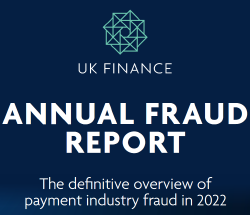Trust has been a big issue for all of time, or at least the 300,000 years humans have been around. Trust sensitivity has been baked into our DNA by selection, simply because the people most likely to survive and reproduce were those who were skeptical and mistrusting of anything that they didn’t already know. Change was something to be suspicious of: unfamiliar plants, unknown people from the tribe in the next valley pitching up unexpectedly. All these things were reasons for fear, uncertainty and doubt.
Trust and familiarity go together
Trust is a function of familiarity, and trust rears its head as an issue when change makes things unfamiliar. Until the industrial revolution the things that people needed were made by artisans and craftsmen who were known or recommended. The factories that started to emerge in the mid 1700s churned out products with no connection to the people who’s hands made them. Brands emerged as the way to identify trustable products, which is why Josiah Wedgewood put his name on everything he did. This has been true ever since – brands communicate trust or otherwise. As they used to say: “No one ever got fired for buying IBM”.
 The human instinct is to go with what you know or know something about, and when change happens, that instinct becomes an acute driver of behaviour. As we know, the key challenge for emerging firms and anyone new entering a market is to create awareness and build trust. Anyone with a new product or service must first get people to trust it – “does it do what you say?”. Every fresh entreprenuer is asked by investors to demonstrate traction – “what have you sold and who were the buyers?” These are the simple, everyday reactions of humans to things that they don’t yet trust.
The human instinct is to go with what you know or know something about, and when change happens, that instinct becomes an acute driver of behaviour. As we know, the key challenge for emerging firms and anyone new entering a market is to create awareness and build trust. Anyone with a new product or service must first get people to trust it – “does it do what you say?”. Every fresh entreprenuer is asked by investors to demonstrate traction – “what have you sold and who were the buyers?” These are the simple, everyday reactions of humans to things that they don’t yet trust.
The pace of change is escalating
The difficulty for us all, now, is that technology is delivering us big changes in lots of areas at an ever accelerating pace and, in consequence, trust is now a central issue for everyone. This issue has been put on steroids by the new visibility of developments in AI technologies, many of which have actually been around for ages.
We all laughed at the “security camera images of Jesus stealing a pizza”, which we could reliably dismiss as untrustworthy and just funny, not least because the first appearance of anything like a pizza was about 1,000 years after him, never mind security cameras. More difficult, though, were the images that appeared about three months later, of the Pope walking in the Vatican wearing a white puffer jacket. Did he really do that? The image is hard to trust and hard to dismiss.
 The serious discussions going on now are about how we can identify untrustworthy images, sound and text. A straw poll among the AI researchers at a recent conference revealed that of 23 asked, 17 were of the view that fakes would become undetectable, and only one thought not. The remaining five sat on the fence.
The serious discussions going on now are about how we can identify untrustworthy images, sound and text. A straw poll among the AI researchers at a recent conference revealed that of 23 asked, 17 were of the view that fakes would become undetectable, and only one thought not. The remaining five sat on the fence.
Law makers and regulators have to respond
Governments and others are struggling to find any regulatory frameworks that might be up to the job of protecting citizens and firms in this brave new world, along with all the other issues that have been put into their in-trays by technology – not least data protection and the safeguarding of sensitive personal information.
 Among the challenges facing regulators and law makers is fraud, which is all about mis-placed trust. A UK payment industry body reported that £1.2bn was lost by the payment industry to fraud in 2022, with the number of confirmed cases reaching very close to 3m – on the way to 10,000 a day. This is just frauds perpetrated on industry firms. Personal losses to fraud will add to the scale and reach. Of course, now AI comes into play here, too, and will make scams ever more believable and harder to detect and, therefore, successful.
Among the challenges facing regulators and law makers is fraud, which is all about mis-placed trust. A UK payment industry body reported that £1.2bn was lost by the payment industry to fraud in 2022, with the number of confirmed cases reaching very close to 3m – on the way to 10,000 a day. This is just frauds perpetrated on industry firms. Personal losses to fraud will add to the scale and reach. Of course, now AI comes into play here, too, and will make scams ever more believable and harder to detect and, therefore, successful.
Regulators and law makers already have a daunting responsibility and they’re always behind the curve playing catch-up. The rate of change is increasing and no sane person would say that there is any end in sight to all of this. UK rules are changing for banks this year, with the introduction of new obligations to reimburse almost all cases of Authorised Push Payment fraud from October.
Firms are caught between different pressures
Pity the poor decision makers in firms operating in this brutal environment of menacing change. Whether you’re a technology leader or follower, the range of available applications of technology is large and growing, and there are ever-present urgencies to stay ahead or simply keep up. This is a changing landscape and it’s very easy to miss what’s coming next and the way it will both overturn what you’ve been planning, and open up new opportunities in equal measure.
The legal and regulatory picture is changing all the time, as authorities grapple with the issues of today, never mind those of tomorrow. This is made significantly more onerous and complex for anyone operating overseas or for whom multiple jurisdictions apply, as many do.
Customers rightly expect to be able to trust the firms they deal with, and there are so many ways that can dent that trust or demolish it completely. Brand and reputation damage are ever present threats. Are suppliers trustworthy? Who saw coverage of Zuckerberg getting beaten up by the congressional committe in January, causing him to give a dramatic and unexpected apology.
Much of the discussions going on today around social meda today is about how the platforms have changed from being an interactive environment between friends and groups, to being places where strong views and wrong views are trumpeted, and people sell hard, either themselves or what they do, opening up new trust challenges.
Who to trust?
It’s been said that Trump’s detractors “…took him literally and not seriously”, whereas his MAGA army “…take him seriously but not literally. Trust is a slippery world and it’s a serious issue for business decision-makers, but it’s an irony that they must first decide who to trust in their efforts to grapple with it. It’s crucial to understand potential advisers in terms of background, track record, demonstarted expertise, understanding and insight. It’s not for the faint hearted.
Peter is chairman of Flexiion and has a number of other business interests. (c) 2023, Peter Osborn
